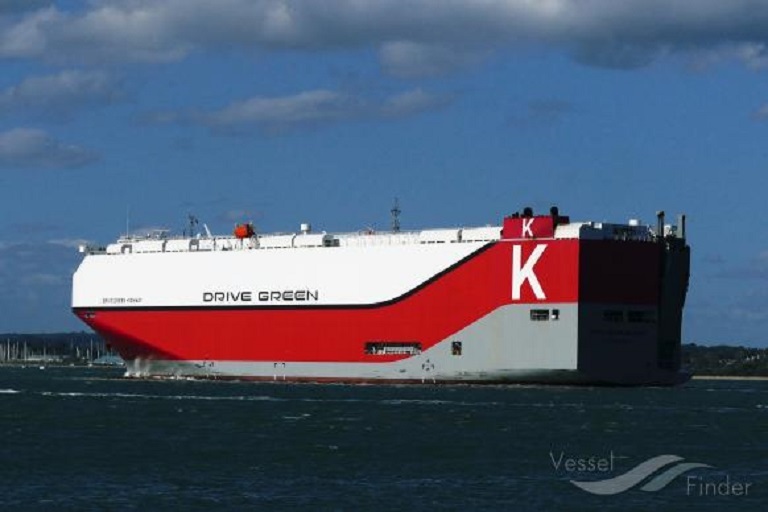In December 2018, Kawasaki Kisen Kaisha, Ltd. (“K” Line) placed an order for a car carrier vessel fueled by LNG (liquefied natural gas) with Imabari Shipbuilding Co., Ltd. as a next-generation car carrier vessel with reduced environmental load. Construction has been started and expected completion will be in the fall of 2020. The outline of the vessel is as follows:

- Length Overall: about 199.9 meters
- Width: about 37.2 meters
- Maximum number of vehicles loadable: About 7,020
- Gross Ton: about 73,800 tons
- Country of Registry: Japan
“Due to ever-increasing high environmental awareness, our study of LNG fueled vessel has been accelerating. With the support of the "Model Project for Maximize Reduction of CO2 Emissions from LNG fueled Vessels" a joint project between the Ministry of the Environment and the Ministry of Land, Infrastructure, Transport and Tourism of Japan, came to materialization this year when our company marked the 100th Anniversary of its foundation.
In 2015, we formulated a long-term environmental management vision called the "K" LINE Environmental Vision 2050 “Securing the Blue Seas for Tomorrow,” with the aim of minimizing all environmental impacts generated by our business activities. In February 2016, we launched an environmental-friendly flagship called “Drive Green Highway,” a car carrier vessel with the next-generation environmental technologies such as state-of-the-art energy-saving technologies and SOx scrubbers (sulfur oxide purification equipment). In the Environmental Vision 2050, we have set the goal of "Reducing CO2 emissions by half" and "Replacing majority of energy currently consumed with new energy sources," and this LNG-fueled ship will be a next-generation environmental-friendly car carrier vessel for achieving these goals.
By building LNG-fueled car carrier vessels, we are actively responding to a wide variety of transportation needs from customers both domestic and overseas, while responding to the growing need for environmental friendliness, and contribute to a sustainable society through high-quality transportation.”
(Note) LNG fuel reduces CO2 emissions by about 25 to 30%, sulfur oxides by 100%, nitrogen oxides by about 80 to 90%, respectively, compared with conventional fuel oil. It is attracting attention as a potential alternative fuel with less environmental load.